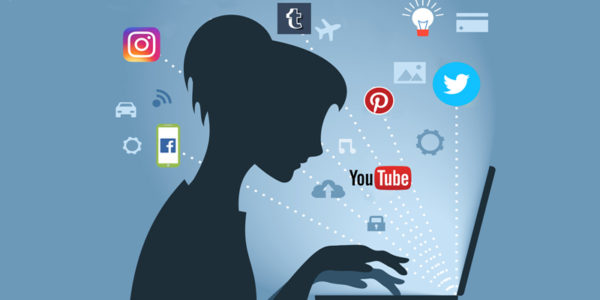
Generation Z is more commonly known as the “post-millennials.” These include people from ages five to nineteen. Gen Z has been raised in an era of newfound and innovative technology.
This generation hardly remembers a world without Wifi, i-products, or popular apps such as Snapchat or Secret. This young generation greatly differs from the millennial and will change the media landscape drastically.
1. Privacy
Generation Z has become more private than previous generations. They watched the millennials before them post inappropriate pictures, endure or participate in cyberbullying, engage in activities online that were harmful to all parties involved, and use social media as a way to stalk, compare, compete, and generally misuse.
Through these observations, Gen Z has developed a sense of privacy and cautious sentiments when posting or sharing information through social media.
Apps such as Whisper, Secret, or Snapchat have become extremely popular because they allow users to send messages, pictures, and videos that will “disappear” soon after they are sent.
Apps or technology that allows for greater privacy will continue to be popular as the repercussions of posting an inappropriate picture or engaging in harmful activities on social media is being discussed more and more in schools, on the news, and in society.
2. Status
Generation Z has changed the meaning of having “followers” or “likes.” They have shaped the purpose of social media from being a means of communication to a definition of status. This generation relies on a number to define their popularity and importance in society.
3. On Demand Services
On demand services already have been increasing with new technology and increased online users. In the next decade, majority of those users will be a part of Generation Z.
Face-to-face interaction is decreasing drastically as other online options are more efficient, inexpensive, and easy to use for this younger generation.
4. Change in Marketing
Generation Z has an even smaller attention span than its predecessors. With applications such as Vine which consists of only six second videos, marketing towards this new generation is shifting. Marketers for companies and big business are focusing on changing media to convey its message in a small amount of time to maintain the attention of its audience.
Education in the business school is encompassing the changes Generation Z brings by teaching its students more about short, quick, and precise pitches that catch attention vs. long power points and lectures that has their audience bored within seconds.
Ads companies use on media such as Instagram, Facebook, and YouTube are now thirty second videos or less filled with vibrant colors and things that are more understood by the younger generations such as the saying “it’s lit.”
5. Job Market Shift
As a result of usage of media outlets by Generation Z, there is a rising demand for an online job market. YouTube videos made by teenagers that are hilarious, creative, or just something interesting to watch suddenly becomes a full-time job.
Take “Superwoman,” a famous YouTuber that posted videos then suddenly had millions of watchers, a movie, and a tour. Jobs created through media and online are becoming more popular with Generation Z and have inspired many to create, explore, and use media to create more jobs.
Creators of apps such as Snapchat, Whisper, and Secret are becoming millionaires in just a couple years. While those in their 20’s-30’s are worried about finding or keeping a job, a whole new job market has been opened due to Generation Z’s fascination with media.
6. Cultural Acceptance
Generation Z has grown up in a world where they can’t remember not having an iPhone in their hands. This kind of open communication and access to media has created a new kind of cultural understanding and acceptance. This kind of media allows them to meet others from other countries and create relationships.
A four-year-old could be playing a game on an app that is international. They could be competing against someone who lives in a country across the world and learn about them through this online media. This kind of social interaction is building a sense of understanding and means of communication between countries.
7. Making Life Easier
This generation likes to have things in a fast, easy manner. Innovations such as app bank deposits, paying with Apple pay from your phone, using online calendars for school activities such as Blackboard, or even alerts that pop up on phones that inform us of disasters, the weather, or current events.
Soon the newspaper will just be an app, banking will be done all online, and responses to natural disasters will be even quicker and more efficient. It is all a direct result of Generation Z’s uses of technology and their innovative means to make things more efficient.
8. Government
Generation Z was born into an era where an African American was president and a female candidate ran for the first time. With increased media usage, this generation has been able to express their opinions more than any other before.
Using media such as Twitter and Instagram, people from all around the world have come together to discuss, debate, and argue their political views. Political leaders once had to travel place to place to communicate their views and seek voters or supporters.
Now, they can communicate this through media and receive hundreds of thousands of responses from all around the world. Generation Z is going to shift the political foundation of our society by making technology the gateway of communication.
This generation no longer relies of traditional media such as news reports because now they can interact with political leaders through media in a more direct manner.
Generation Z has brought about innovative changes to media. They have created a whole new workforce, a sense of efficiency, a whole new on-demand market, and increased communication with others around the world. They will continue to shape the media landscape as new innovative apps and technology continue to be created.